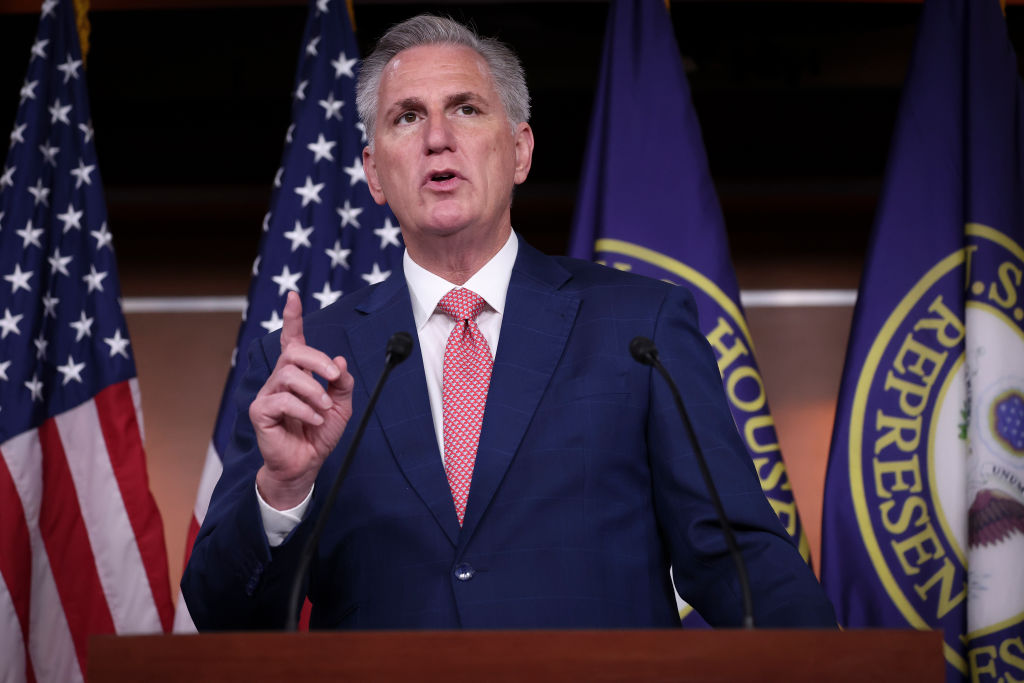The clash that has led to the historic abnormality of a House without a speaker is fascinating in part because of the odd combination of factors at play.
Rather than a battle over a single policy or ideological issue, the frustrations of the chaotic 10 percent of House Republicans who voted against Kevin McCarthy on Tuesday are numerous and varied: from personal gripes to demands divorced from anything a different speaker could deliver. A chief motivation can be found in the make-up of this slim House majority itself — thanks to GOP successes in states like New York and the failures of several populist candidates, it’s far less Freedom Caucus-y and far more Main Street Republican than many conservatives had expected.
Catching up with Congressman Chip Roy last week, we chatted about his intentions. Roy’s attitude is far more serious than some of his insurgent compatriots: he wants to take every opportunity he can to move things in a conservative direction, and he felt this was an opportunity to do that.
A chance conversation with Kevin McCarthy around the same time was positive as well. He was in a good mood, believing that the possibility of a deal was real and that people just needed to, as he is fond of saying, “be willing to get to ‘yes.’” McCarthy’s tendency is to cut deals rather than engage in open warfare; that’s one of the reasons he’s made key decisions designed to tamp down fractious displays. It’s also why he’s backed by the likes of Dan Crenshaw and Marjorie Taylor Greene, two members of the GOP caucus with decidedly different politics.
As much as some members claim it’s nothing personal, the attitude toward McCarthy seems just that. There are only a bare handful of members who can conceivably get to 200 votes, let alone the holdouts needed to ascend to the speakership. Steve Scalise, whose name is often bandied about as an alternative, is not significantly different from McCarthy in ideology or attitude. He may even be less likely to cut the deals that conservatives want. And Jim Jordan, whom conservatives have been voting for in protest, wants the speakership — just not yet.
This is also a story about the death of norms. McCarthy is not some ideologically unacceptable squish — he’s a conventional mainstream Republican who’s been friendly with the MAGA wing, even if he’s now being treated as if he were Arlen Specter. But nowadays, even when a supermajority of your colleagues have nominated a party leader, the norm of graciously accepting defeat is out the window. For the likes of Matt Gaetz, such norms never applied anyway.
As for the institutional complaints raised primarily by Roy, he is almost assuredly correct. The backbench frustrations with being asked to go along with policy votes they loathe is real, and having a more open House process (the House has been broken in this regard for decades) would be a good thing. Yet it would also result in a larger number of coalitions formed without the votes of the Freedom Caucus — meaning more legislation will pass that conservatives won’t like.
That scenario will confront anyone in the speaker’s job, which means the position is best filled by someone with a big-tent mindset who can raise money and handle the managerial side of things, as opposed to taking an authoritarian approach and more ideological leadership. It was Republicans, not Democrats, who knifed Newt Gingrich and John Boehner, and elevated Paul Ryan only to find problems with him too. They would turn on Scalise and Jordan as well, demanding impossible things, and then going to the cameras to complain when GOP leadership inevitably turns to Democrats to pass bills.
The unenviable nature of this job may be the best thing Kevin McCarthy has going for him. Jordan and Scalise are surely trying to hold on until after the next election rather than deal with this present headache. As for McCarthy, it’s wise to remember the lesson of The Hunt for Red October: “The hard part about playing chicken is knowing when to flinch.”

























